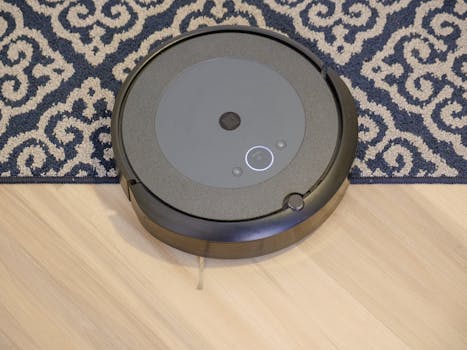
Home Automation in 2025: The Smart Home Ecosystem
Introduction to Home Automation
Home automation, also known as smart home technology, refers to the use of electronic devices and systems to control and monitor various aspects of a home. Home Automation in 2025 is becoming increasingly popular as it provides convenience, energy efficiency, and enhanced security. With the advancement of technology, home automation systems are becoming more sophisticated, allowing homeowners to control their homes remotely using their smartphones or voice assistants.
Key Components of a Smart Home Ecosystem
A smart home ecosystem typically consists of several key components, including:
- Sensors: These are devices that detect and measure various parameters such as temperature, humidity, and motion.
- Actuators: These are devices that perform actions based on the data received from sensors, such as turning on lights or adjusting the thermostat.
- Hub or Gateway: This is the central device that connects and controls all the other devices in the smart home ecosystem.
- User Interface: This is the interface through which users interact with the smart home system, such as a smartphone app or voice assistant.
Applications of Home Automation
Home automation has a wide range of applications, including:
- Lighting Control: Smart lighting systems can be programmed to turn on and off automatically, adjust brightness, and change color based on the time of day or occupancy.
- Temperature Control: Smart thermostats can learn a home’s temperature preferences and adjust the temperature accordingly, saving energy and improving comfort.
- Security Systems: Smart security systems can detect intruders, alert homeowners, and provide video footage of the incident.
- Entertainment Systems: Smart entertainment systems can stream music and videos, and provide voice control over the TV and other devices.
Benefits of Home Automation
The benefits of home automation are numerous, including:
- Convenience: Home automation provides convenience by allowing homeowners to control their homes remotely and automate various tasks.
- Energy Efficiency: Smart home systems can optimize energy consumption by turning off lights, appliances, and heating/cooling systems when not in use.
- Enhanced Security: Smart security systems can detect and prevent intruders, providing an additional layer of security for homeowners.
- Increased Property Value: Smart homes can increase property value by providing a modern and convenient living experience.
Conclusion
In conclusion, home automation in 2025 is becoming increasingly popular as it provides convenience, energy efficiency, and enhanced security. With the advancement of technology, smart home systems are becoming more sophisticated, allowing homeowners to control their homes remotely using their smartphones or voice assistants. As the smart home ecosystem continues to evolve, we can expect to see more innovative applications and benefits of home automation in the future.
